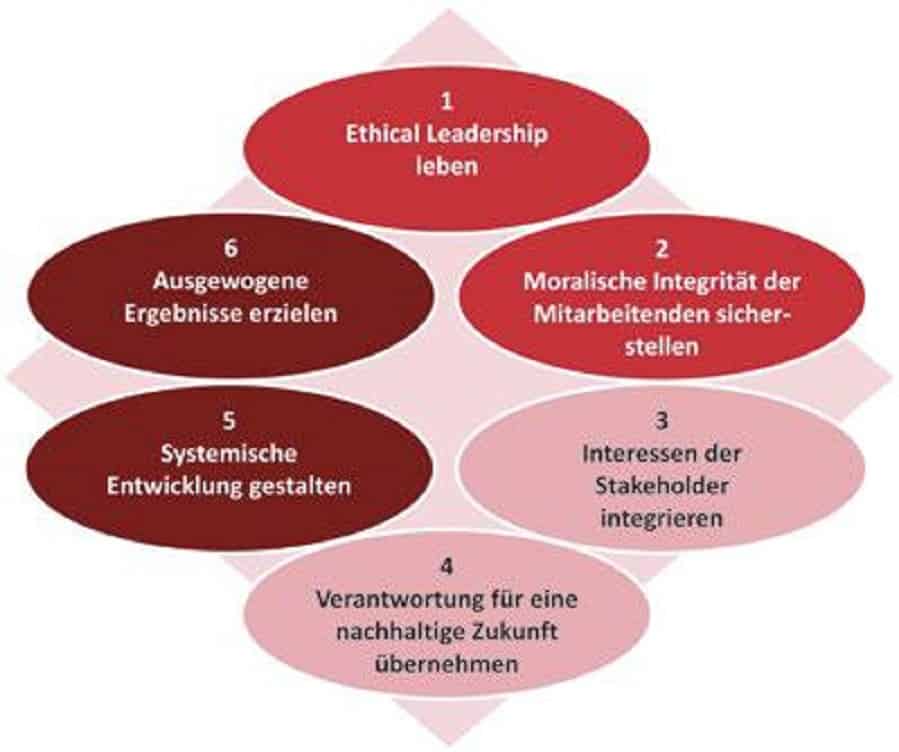ethical excellence
In order to overcome ethical challenges, companies need employees and managers with moral integrity. The Swiss Ethics Model offers not only a practical tool for raising awareness among managers, but also an implementation guide and an ethics assessment that can be used to develop, manage and measure the ethical performance of an organisation.

The Swiss Ethics Model was developed by the Swiss Excellence Forum in collaboration with the Ethics Center of the University of Zurich. It is designed for organisations in business, administration and the rest of society (such as non-profit organisations) and can be applied irrespective of their size, level of maturity, sector and cultural area.
Swiss Ethics Model as a management tool
The Swiss Ethics Model takes all aspects of an organisation that are relevant to its management and operation and combines them with the ethical standards to form a systematic management approach. It is characterized by the fact that it does not only demand the standards from the outside, but systematically links them to the relevant activities and results of the organization. The model is located at the normative-strategic level and is used by managers and management teams to assess the quality and long-term benefits of the ethical performance of the organization as well as the ethical behavior of all participants.
In concrete application, the model guides managers to gain clarity about the ethical goals of the organization and its ethical standards. By selecting and prioritizing specific success factors within the framework of their own corporate strategy, the Swiss Ethics Model also becomes an efficient and effective management tool. At its core is a practical and easy-to-use ethics assessment. The model is designed in such a way that it can be linked to the standard management and assessment tools of ethics, such as the comprehensive set of rules ISO 26000, and recommends them for an in-depth analysis of ethical performance.
The elements of the model
The Swiss Ethics Model comprises three elements. The "ethical success factors" at the strategic level, the implementation model as a cause-effect structure at the operational level and the ethics assessment for evaluation.
The "ethical success factors
Six success factors define what is relevant in terms of ethical performance in an organisation. They can be understood as strategic focal points on which sustainable success is based from an ethical point of view.
The six success factors (see figure) are divided into three topics:
- relevant actors: managers and employees
- ethical dimensions: Stakeholder interests and sustainability
- organisational dimensions: systemic development and balanced outcomes
The implementation model
The implementation model forms the basic structure that serves to systematically implement the success factors. The implementation model is a cause-effect structure and shows the relationship between activities and results. It comprises four fields of action and four result areas.
The assessment system - Ethics Assessment
The Ethics Assessment offers organisations the opportunity to measure their corporate quality in terms of ethical excellence and to compare themselves with other organisations (benchmarking). In the process, all of an organisation's performance is systematically analysed and assessed with regard to ethical aspects. The assessment helps to understand and establish control loops and learning spirals.
The Swiss Ethics Model can be obtained from the Swiss Excellence Forum.









